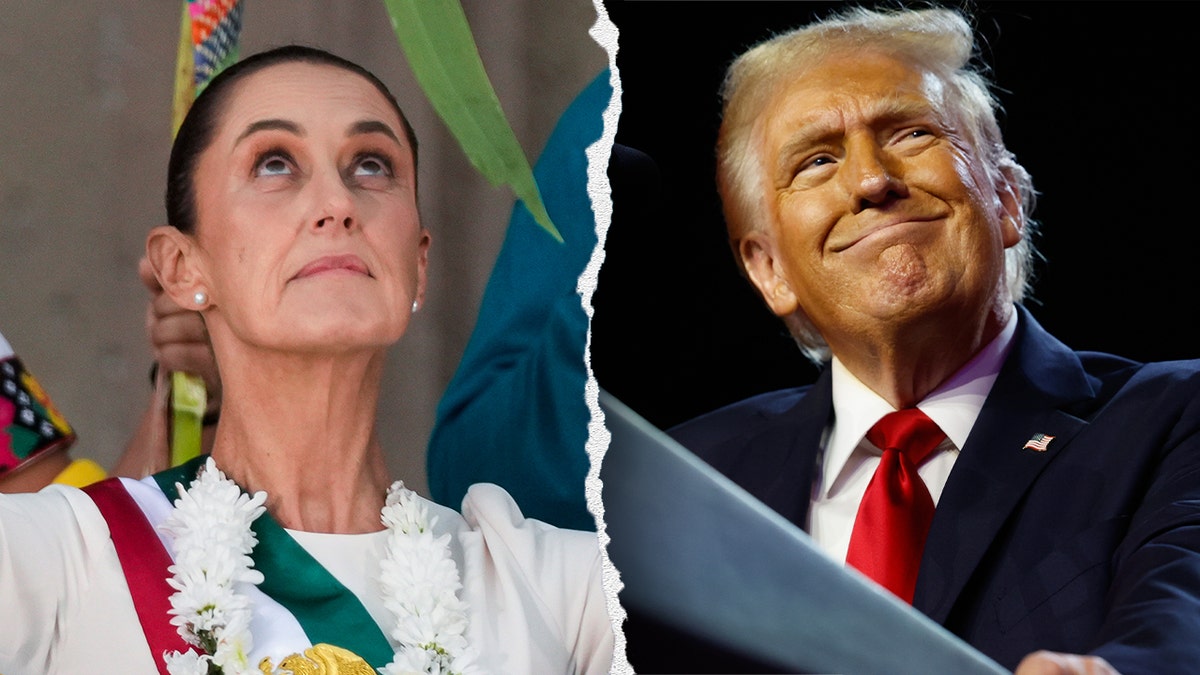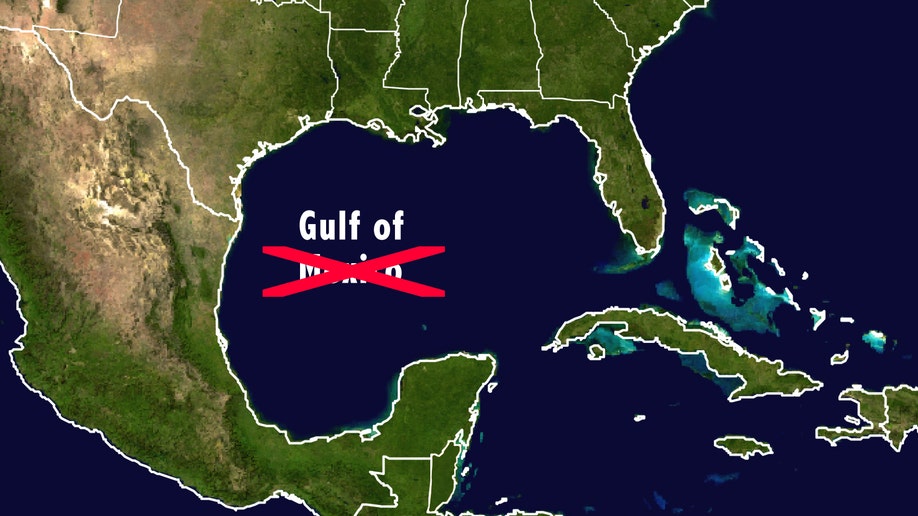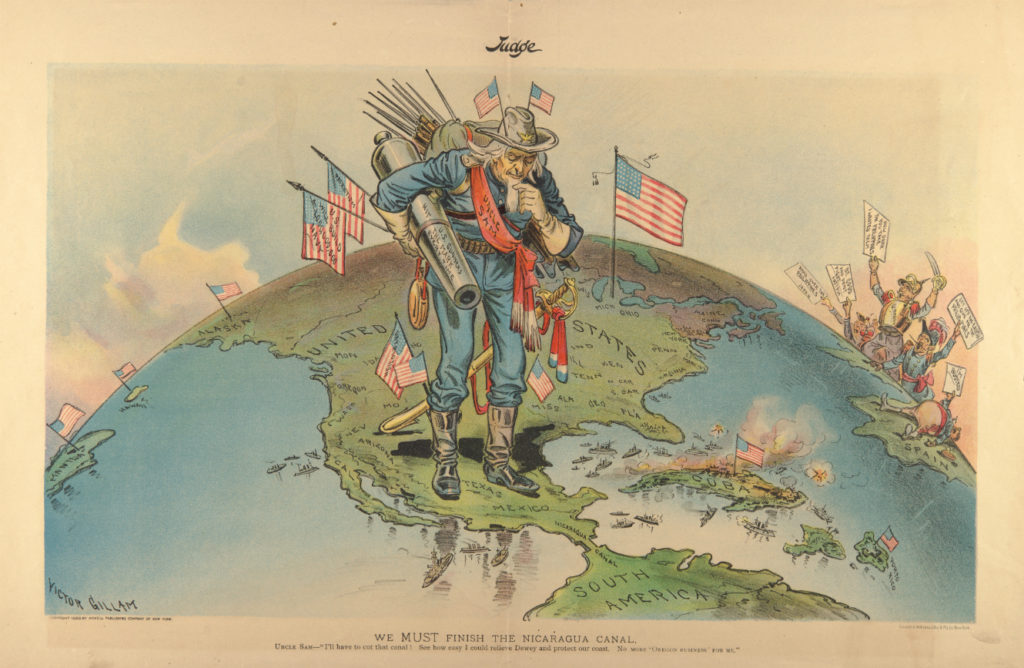
Renaming The Gulf of Mexico
Isn’t A Laughing Matter But Part
Of a US Imperialist Power Grab
Michelle Ellner and Melissa Garriga / CODEPINK Alert
(February 04, 2025) — Trump’s executive order to rename the Gulf of Mexico the “Gulf of America” isn’t just another absurd stunt or another example of his outlandish behavior. It signals a much deeper, more troubling agenda that seeks to erase historical identity and assert imperial domination over a region already suffering under a long history of interventionist policies. At its core, this is a move to expand the US empire by erasing Mexico’s presence from a geographical feature recognized for centuries.
The name “Gulf of Mexico” has existed since the 16th century. Its recognition is supported by international organizations such as the International Hydrographic Organization (IHO) and the United Nations Group of Experts on Geographical Names (UNGEGN). These organizations ensure that place names remain neutral and historically accurate, preventing nations from distorting or erasing cultural and historical ties to specific regions.
Mexico has formally rejected this renaming, emphasizing that no country has the right to unilaterally change the identity of a shared natural resource that spans multiple borders. This is a matter of respect for international law and sovereignty, which the Trump administration has ignored in favor of pursuing nationalistic expansionism.

Erasing “Mexico” from our maps isn’t an aberration. It’s part of a long pattern of anti-Mexican racism in the US, ranging from political scape-goating and border militarization to violent rhetoric that fuels hate crimes. But this move goes beyond that. It fits into a much larger US strategy of controlling the Western Hemisphere, which dates back to the Monroe Doctrine of 1823, which claimed the US had the right to dictate who influences Latin America.
Over time, this ideology has come to justify US-backed military interventions, coups, and economic manipulations in the region aimed at securing US interests and ensuring that Latin America remains in a subordinate position.
Not only is the Gulf of Mexico a site of historical importance, but it is also rich in oil and natural resources. This fact is no coincidence. The United States has a long history of trying to control these resources including backing oil company boycotts against Mexico’s nationalized industry in the 1930s and signing trade agreements that favor US companies over Mexican sovereignty.
Renaming the Gulf of Mexico signals a territorial and economic claim over these waters and their resources further cementing US imperial ambitions in the region.
Companies like Google Maps, which has announced plans to rename the Gulf of Mexico to the Gulf of America after Trump’s executive order, are just playing into the billionaire-fueled power grab that advances a racist, nationalist agenda of domination and imperialism. Even if Google only applies this change in the US, it still normalizes the idea that facts can be rewritten to serve a political agenda.
At a time when diplomacy and mutual respect should be prioritized, honoring the internationally recognized name would send a clear message that Google values historical accuracy, global cooperation, and good neighborly relations.
The Gulf of Mexico is more than just a body of water; it is a shared resource of immense ecological, economic, and cultural significance for Mexico, the United States, and the world. It plays a critical role in regional trade, fisheries, and energy production, hosting some of North America’s most important offshore oil reserves. The United States has long considered Latin America its “backyard,” and this is another proof that its imperial ambitions are still alive.

The environmental devastation already occurring in the Gulf region is evidenced by devastating oil spills and the degradation of marine ecosystems. This destruction is further compounded as US and foreign companies continue to exploit the region’s resources with no regard for the long-term damage.
The movement to rename the Gulf of Mexico fits into a broader pattern of anti-Mexican sentiment in the United States that has often manifested in political scapegoating, hateful rhetoric, and border militarization. Such rhetoric fuels violence and hate crimes against Mexican and Latino communities.
While Trump’s attempt to erase “Mexico” from the Gulf of Mexico may appear symbolic, it could have devastating consequences. It reflects a disregard for historical truth, an aggressive assertion of US superiority, and the continuation of exploitative colonialist practices that harm both the environment and Latin American people.
ACTION:
Tell Google to Keep the Gulf’s Name Intact!
Michelle Ellner is a Venezuelan-American photographer and Latin America campaign coordinator with CODEPINK. Born in Venezuela, she holds a bachelor’s degree in languages and international affairs from the University La Sorbonne in Paris. She worked with community-based programs in Venezuela and served as an analyst of US-Venezuela relations.
Melissa Garriga is the communications and media analysis manager for CODEPINK. She writes about the intersection of militarism and the human cost of war. She lives on the Gulf of Mexico.